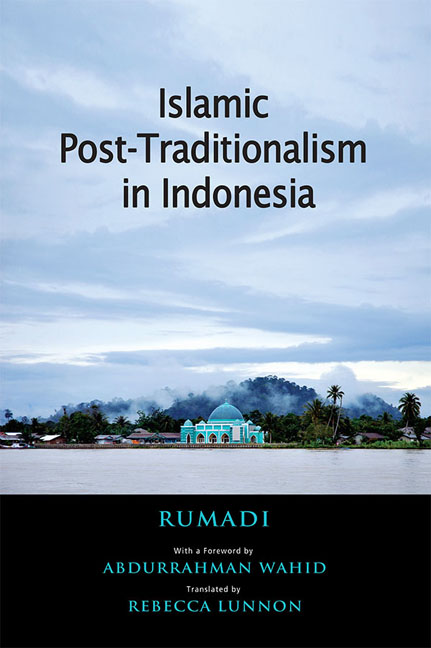Summary
This book was always intended to examine three key issues: first, the intellectual dynamics occurring in the NU community up to the development of the discourse of Islamic post-traditionalism; secondly, the factors that influenced the emergence of Islamic post-traditionalism; and thirdly, the forms and discourses that have developed in the NU community through the Islamic post-traditionalist paradigm.
Examination and analysis revealed that the emergence of a young NU generation with new and more progressive thoughts is indeed unique and interesting. It is unique and interesting because NU, which is seen to be traditional and is often stigmatized as backward, ignorant, and old-fashioned, actually has within it a group of youths who think and participate in movements in a way that is able to overcome this stigma. This cannot be separated from the NU Congress's decision to return to the Khittah of 1926 in 1984. The decision was to have extensive implications for NU, not just in political life, but also in terms of the orientation of its struggle. While prior to this decision, NU's success was always measured by how far NU was able to insert its cadres into strategic positions in the government and legislative branches, afterwards it was measured by how much NU contributed to alternative progressive thought and empowerment, especially for society.
This change in orientation was largely due to two highly influential figures, namely Kiai Achmad Siddiq and Kiai Abdurrahman Wahid. Both were important NU leaders who cared more about sociocultural development than socio-political development. Their existence gave the young NU generation an intellectual spirit. One of Kiai Achmad Siddiq's important contributions was his success in resolving the tension between religion and the state when the New Order launched Pancasila as the soul basis or ideology for social and political organizations. At the same time, KH Abdurrahman Wahid played a significant role as the social, political, and cultural umbrella for the younger NU generation to develop critical progressive thought within the tradition of NU intellectualism. The tradition of progressive thought amongst the NU youth has recently been institutionalized in the NGOs they manage. This NGO tradition that develops programmes and is oriented towards social development, especially that of the pesantrencommunity and all the intellectual wealth and traditions it possesses, has had a significant impact on the development of progressive thought in the pesantrencommunity.
- Type
- Chapter
- Information
- Islamic Post-Traditionalism in Indonesia , pp. 283 - 290Publisher: ISEAS–Yusof Ishak InstitutePrint publication year: 2015

